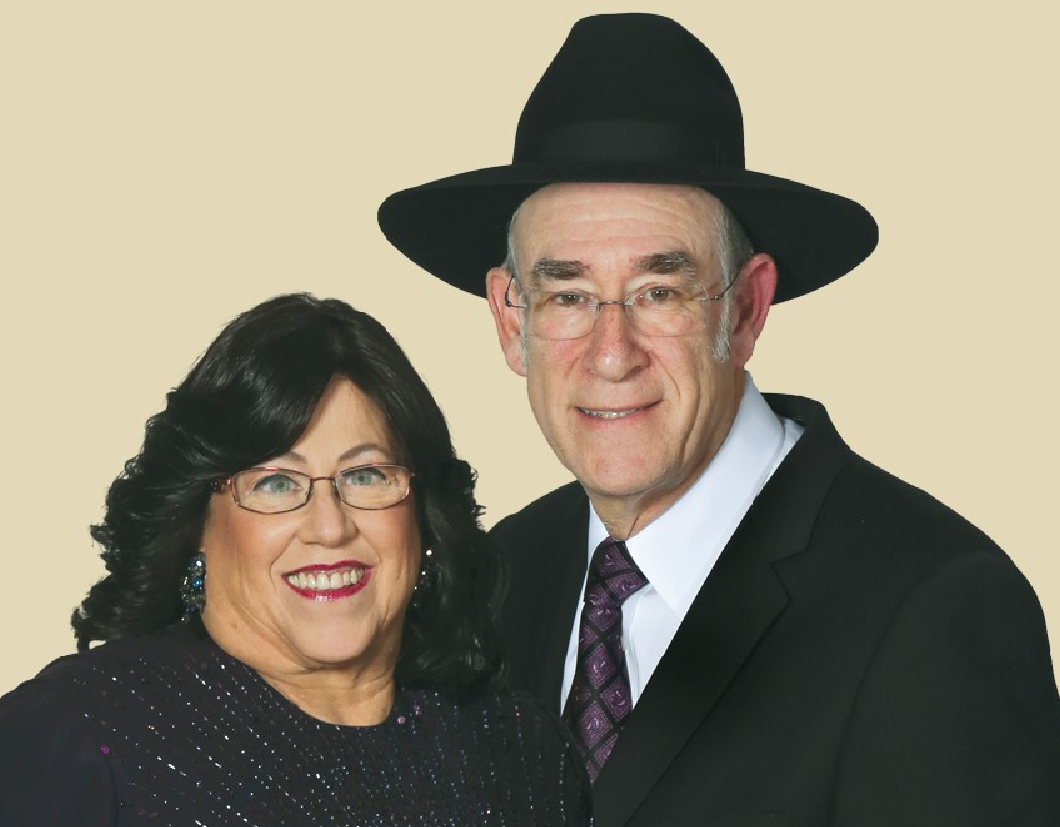Yovel for the Yudins


Photos: Naftoli Goldgrab
How to build an infrastructure
“Our Shabbos table was always a home run, even if my derashah wasn’t”
When the Yudins arrived in Fair Lawn in 1969 with a three-year-old child, Fair Lawn was still Jewish frontier land. Yeshiva University had helped the few Orthodox families who’d moved in from nearby Paterson organize a shul; the original 17 families bought a split-level house for the rabbi with a room downstairs for the “kehillah.”
“On Friday afternoons, I’d drive around and knock on doors to try to ensure a minyan,” Rabbi Yudin says. “We invited people for meals, to our succah. Our Shabbos table was always a home run, even if my derashah wasn’t.”
The relentless outreach, plus the lure of the rebbetzin’s Shabbos fare and Shabbos Mevarechim cholent, helped them slowly grow a community. By 1983 the congregation had built the current building, which included a mikveh in the back, supervised by Dayan Yaakov Posen from K’hal Adath Jeshurun (Breuer’s) and with Rav Moshe Bick as rav hamachshir. “I appreciated every step of our growth,” Rabbi Yudin says. “After the mikveh we put up an eiruv, which was another huge project. We had to work with the town, plot the boundaries — it was quite exciting.”
About 15 years ago it was clear that the two yeshivos in northern New Jersey, Yavneh and Yeshiva of New Jersey, weren’t sufficient for the burgeoning population. Rabbi Yudin says this gave him the privilege to help found Yeshivat Noam, a yeshivah ketanah, which now boasts 800 students.
The community took another mighty leap forward about 13 years ago, when the shul asked Yeshiva University to send them four young couples to create a “Torah Enrichment Center,” much in the manner of out-of-town Lakewood kollelim. The center has since helped attract over 80 more young families to the community. Having now reached critical mass, Fair Lawn boasts a kosher supermarket, bakery, and restaurant. But the personal touch was never lost.
“Our kehillah grew slowly,” says Rebbetzin Shevi Yudin. “While some rabbis are too busy to have friends, we all grew together and worked closely together to build. We were the only shul in town for many years, so we were the spiritual and social hub.”
Rabbi Yudin comments that his community is special because it has evolved into a diverse mix of FFB families, baalei teshuvah, Russians, Israelis, and others. “There is a lot of mutual respect,” he says. Clearly, that tolerance trickles down from the top.
How to build relationships
“There’s no closer relationship than the one established when people learn Torah together”
Rabbi Yudin’s former teacher, Rabbi Joseph Lookstein a”h, told him that an ideal rabbi should become a member of his congregants’ families. Rabbi Yudin has achieved that — although today, with 275 families instead of 17, this has become a more time-consuming task, despite the aid of Associate Rabbi Avrohom Markowitz.
What Rabbi Yudin modestly avoids mentioning — but his wife, Shevi, does — is that their congregation gelled into a family in large part because the Yudins always maintained an open house. In fact, it’s so open that their dining room has no furniture beyond one very large table. Locals jokingly call their home “Yud-Inn,” because various people are always moving in, some staying for years.
(Excerpted from Mishpacha, Issue 755)
Oops! We could not locate your form.













